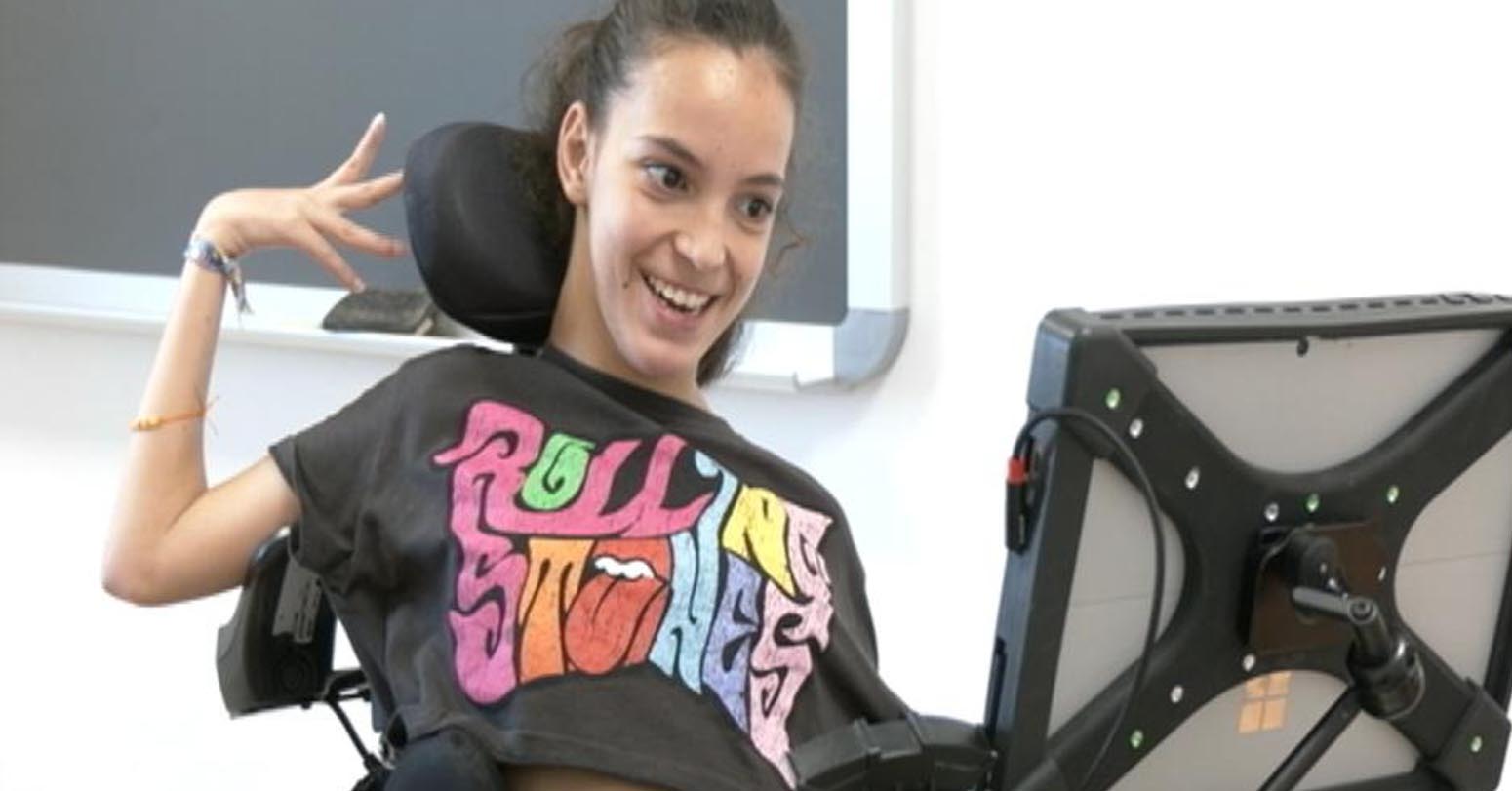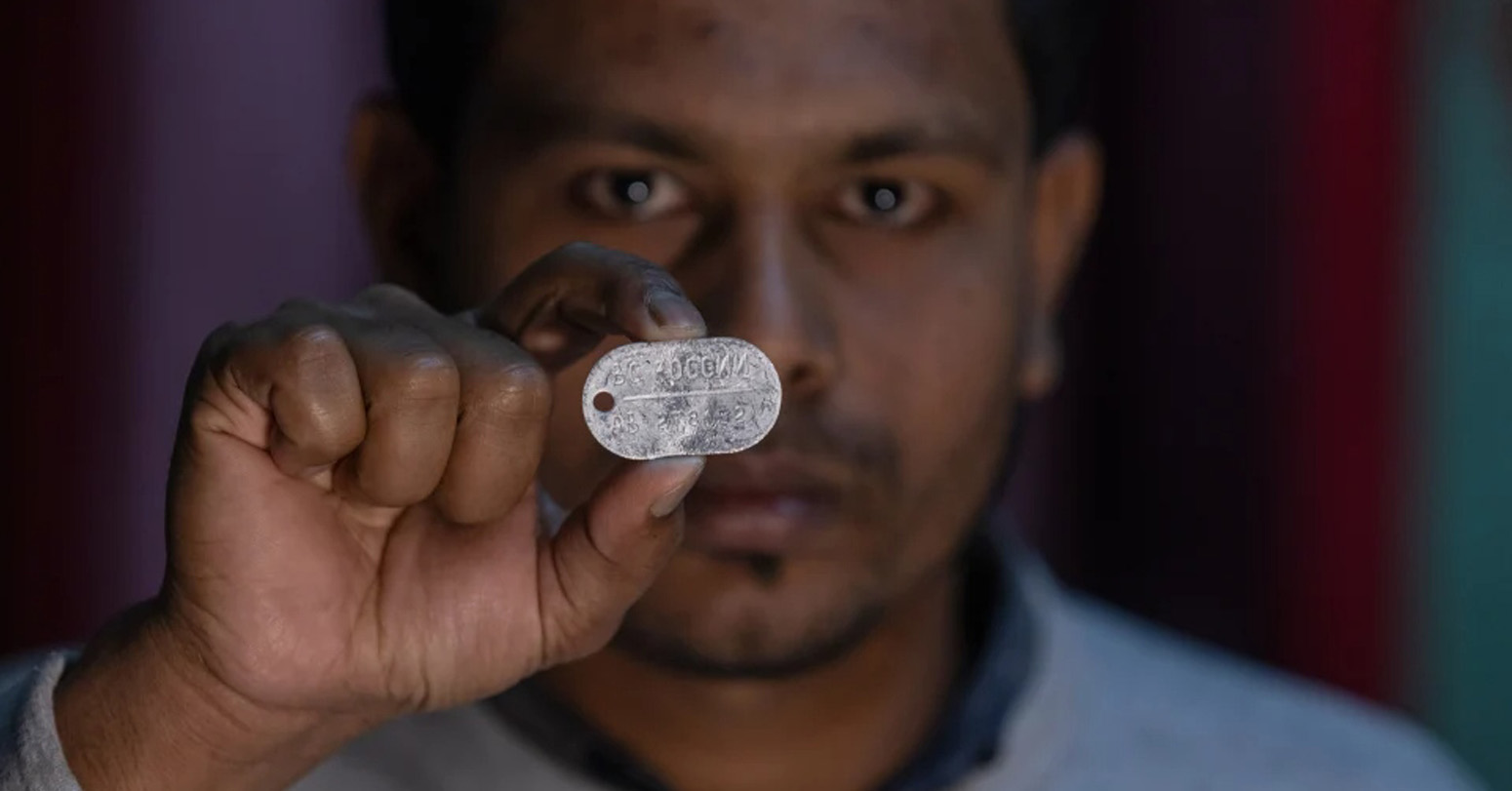
A 16-year-old Spanish girl with cerebral palsy (CP) who lacks oral language skills has marked a milestone by passing secondary education thanks to a device that tracks her eye movements, allowing her to communicate by writing with her eyes.
Suffering from spastic tetraparesis, one of the most severe forms of CP, Gema Canales uses a system similar to the one used by the late British physicist Stephen Hawking. But instead of accessing it with her cheek, she does so with her eyes.
"Eye tracking is a technology that allows you to track eye movements and interact with devices such as computers or tablets. To put it simply, the eyes become a mouse," Eduardo Jauregui, CEO and co-founder of Irisbond, the Spanish company that developed the multi-platform device used by Canales, told Xinhua in a recent interview.
Irisbond's technology works on Windows and IpadOS, uses artificial intelligence and can control any screen or touch device with the gaze, making it compatible with any machine, from an ATM to a self-driving car in the future, according to Jauregui.
"Gema has been an example and a reference from an early age. Not only does she stand out as the first girl in Spain to use Augmentative and Alternative Communication with her eyes, but she has also fought tirelessly for this technology to be normalized and integrated into an ordinary classroom," said Jauregui.
Such technologies can be used by people with different diagnoses, such as CP, or by those who have suffered a stroke or woken up from a coma and found their oral language skills affected.
According to data from the Spanish Federation of Associations for the Assistance of People with Cerebral Palsy, 120,000 people in Spain live with this type of disorder, with 80 percent of them requiring significant support for their daily activities.
Jauregui said the Spanish public health system entirely funds technological aids for students with special communication needs, however, "support resources in the classroom are still insufficient."
"What Gema has achieved in her town's public school demonstrates the impact that can be achieved when you have the right tools and the necessary support, becoming a guide for others seeking to achieve the same," he said.
After passing compulsory secondary education, Canales said that she would devote herself to the foundation that bears her name and work to help children who do not have the opportunity she had, whether due to insufficient awareness, financial difficulties, or lack of support.
The Gema Canales Foundation also underscored the need for greater support for students with similar disabilities beyond compulsory education.
"When these children reach baccalaureate, they encounter a big problem. As it is not compulsory education, the materials, teachers and classrooms are not adapted, making it impossible for them to access higher education or university education," the foundation said.
-XINHUA



















Middle-aged man spends millions to
Dr. Dharam Raj Upadhyay: Man
Children, Greatest Victims Of Sudan’s
Breathing The Unbreathable Air
Comprehensive Data Protection Law Critically
Gender Differences In Mental Healthcare